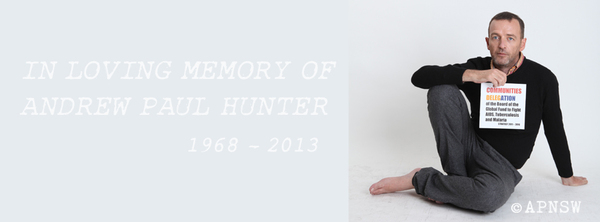
It has been just over one hundred days since the unexpected passing of activist and pioneer Andrew Hunter. As the human rights community comes to terms with the profound loss of a passionate and dedicated leader among its ranks, Asia Catalyst Capacity Building and Community Initiatives Director Gisa Dang takes a moment to reflect on a life well lived.
By Gisa Dang
“There’s a common assumption that laws against trafficking must be good because they must protect the most vulnerable people,” begins a commanding quote from Andrew Hunter in this tribute video. The video was lovingly crafted by Andrew’s partner Dale for a recent commemorative ceremony at The Global Fund to Fight AIDS, Tuberculosis, and Malaria.
Just over 100 days after Andrew’s passing, we are grateful to be reminded again of the many faces of Andrew Hunter: his humor, his candor, his mentorship, his love of Hello Kitty, his activism. Most of all, we remember his conviction to speak truth to power, to not back down, and to smartly question the common assumptions and rhetoric, the jargon to which one can easily succumb.
I have learned many lessons from Andrew, both from his presentations and his actions. He taught me to listen to the voices of marginalized communities themselves. Not to assume, not to quote others’ assumptions, but to go out, ask questions, and listen.
I remember a conversation I had with Andrew a few years back, when I was translating for him at the China Sex Worker Organization Network annual meeting. We were brainstorming ways to bring sex workers and the organizations that were providing services for sex workers closer together. Andrew stopped abruptly. The problem with the conversation we were having, he said, was the language we were using.
“What kind of program do you want from us?” was the question we had been asking participants.
“It’s not about programs”, Andrew told me. “The problem lies with how you’re asking your questions. Don’t constrain yourself to think in programs only, programs should be a response.”
If only Andrew knew how significant this conversation would prove to be in my approach to our work for years to come. He may have assumed that it was just another casual conversation, to be forgotten the next morning, the next week, the next month.
So, here’s to reminding ourselves that common assumptions are just that. We should always question our assumptions and formulate our approaches to follow and foster community leadership based on their perspective.
I want to say “rest in peace, Andrew” – but I know that’s not your style.




